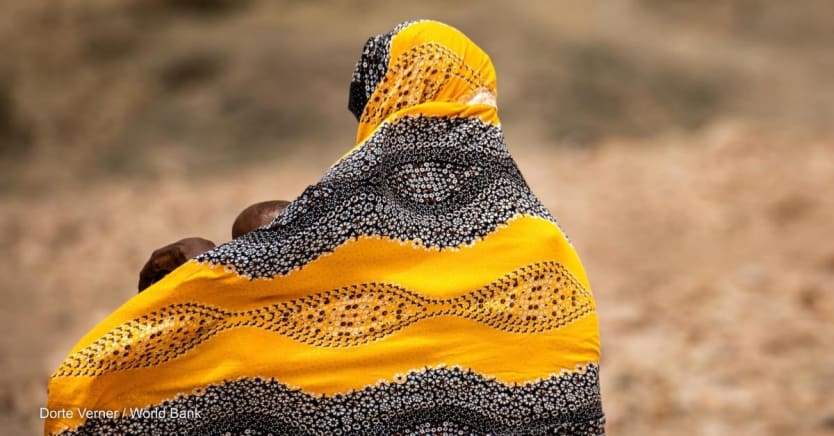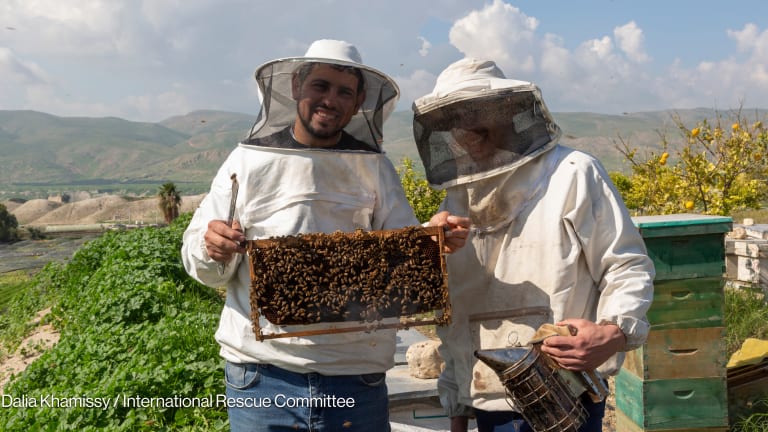
Poverty numbers can be deceptive. Across the world, we are seeing encouraging trends with the number of people living in extreme poverty falling from around 1.8 billion in 1990 to around 700 million people in 2023. That’s encouraging news, of course. But if we zoom in on countries affected by fragility and conflict, poverty is stubbornly hovering at around 312 million people — and rising. And by next year, these countries will be home to most of the world’s extreme poor.
In short, if we do not focus our attention on fragile countries, we will fail in our mission to eradicate extreme poverty.
And here is a hard truth for the development practitioners of the world: We need to stop treating crises as shocks. Unfortunately, crises — including climate change-related extreme weather events, natural disasters, and conflict — are the new normal. And fragility is on the rise.
The challenge is local but also global. The drivers of fragility and conflict know no borders or a country’s income classification. Fragility travels through the contagion of political instability. We’ve witnessed this in West and Central Africa for example, where eight coups have taken place since 2020, mostly in the Sahel. We saw the global impacts a war can have, with the effects of the Russian invasion of Ukraine on global food security and energy prices triggering a cost-of-living crisis in many countries around the world. We must also remember that fragility can exacerbate the impacts of other global challenges such as climate change. Climate will increasingly drive migration — we estimate that by 2050, the world could see 216 million people compelled to migrate within their own countries due to climate change.
A shift in our approach
But there is no room for feeling helpless and hopeless. Instead, we must shift our approach and reflect on the way forward — with humility and determination as our compass. With fragility on the rise, we grapple with the following challenges: How do we stay the course of development when millions need humanitarian assistance? How can we improve prevention efforts? And how do we better anticipate and adapt?
Three big questions with no easy answers. Here are a few points to ponder.
1. First, we can’t lose sight of the medium-term. We know that to be effective, we must address both the immediate needs of people affected by conflict, but also build resilience to break the cycle of fragility. And we have put this thinking into practice in several parts of the world. In Chad, the influx of refugees from Sudan is taking a huge toll on the country’s scarce resources. That is why we teamed up with the U.N. Refugee Agency to provide immediate assistance to refugees and host communities but also increased development funding for health and education services in several areas of the country. In Gaza, while we grieve the tragic loss of life and the devastating impact on all civilians from this conflict, we are working with development partners to support urgent relief efforts but also assess the damages of the conflict and the recovery and reconstruction needs. In Afghanistan, we are implementing our approach and putting women at the center of our support and ensuring that project activities are implemented by and for women.
2. Second, we need to act early. Let me be clear: While restoring trust and renewing social contracts are processes most often beyond our reach, organizations like ours can still play a crucial role in strengthening institutions, promoting governance, and creating jobs and opportunities. While I don’t think the World Bank can prevent conflict, I do believe inclusive development plays a role in strengthening the prospects of prevention. One interesting approach we are taking is allocating additional resources to countries at risk of instability. This is the case for the coastal states of Benin, Cote d’Ivoire, Ghana, and Togo in West Africa where we are targeting border communities to prevent the spread of conflict, reduce vulnerability to climate change, and strengthen local institutions.
3. Third, we need to anticipate better. Although we cannot predict all crises, we can improve our readiness to deal with them. This is why we are working on developing advanced risk monitoring tools that can assist us and our partners to better respond to emerging and current risks.
4. Lastly, fragile countries need more — and stable — funding. This year is crucial for us as we are seeking the biggest International Development Association — our fund for the poorest — replenishment ever, hoping donor commitments match our global ambition. IDA financing to states affected by fragility and conflict has nearly tripled in the last five years, with crisis preparedness added to this agenda. We believe IDA is a key financing and policy tool for the most vulnerable in fragile, conflict, and violence-affected settings, and we need more resources to meet the moment.
In a world in turmoil, we have to be more adaptive when working in difficult conflicts and crises and deepen our partnerships. There is much to learn from our partners, including civil society organizations, who have important expertise and experience in working on these challenges. In a few days, the World Bank will be hosting experts from the development, humanitarian, peace building, and security sectors working in the most fragile settings for the Fragility Forum 2024.
Despite the grim backdrop, I know that this community holds important knowledge and the resolve to come up with the big ideas we need to adapt, innovate, and step forward in a volatile world. I encourage you to join the conversation.
Fragility Forum 2024 “Adapting and Innovating in a Volatile World” starts on Feb 27. Please register here to attend online or in person.








